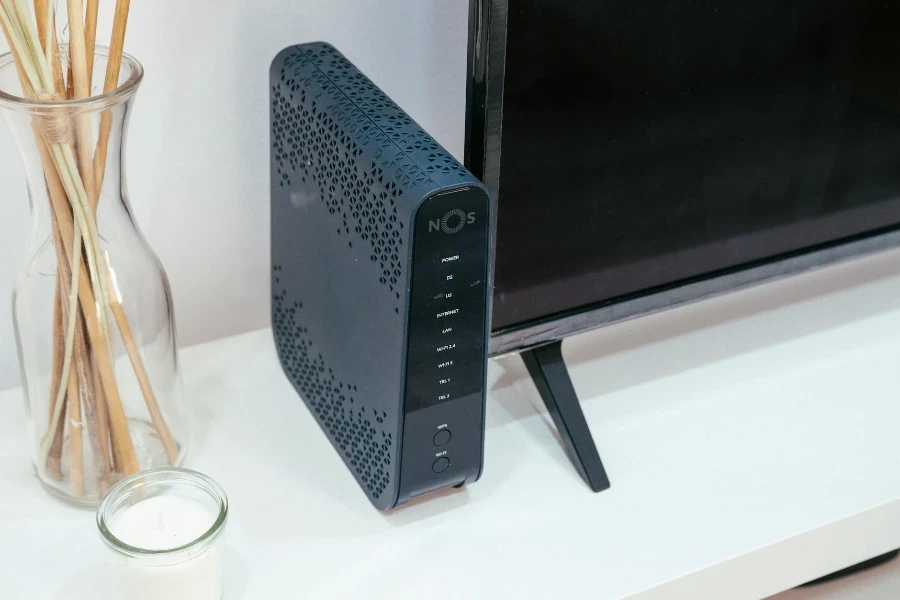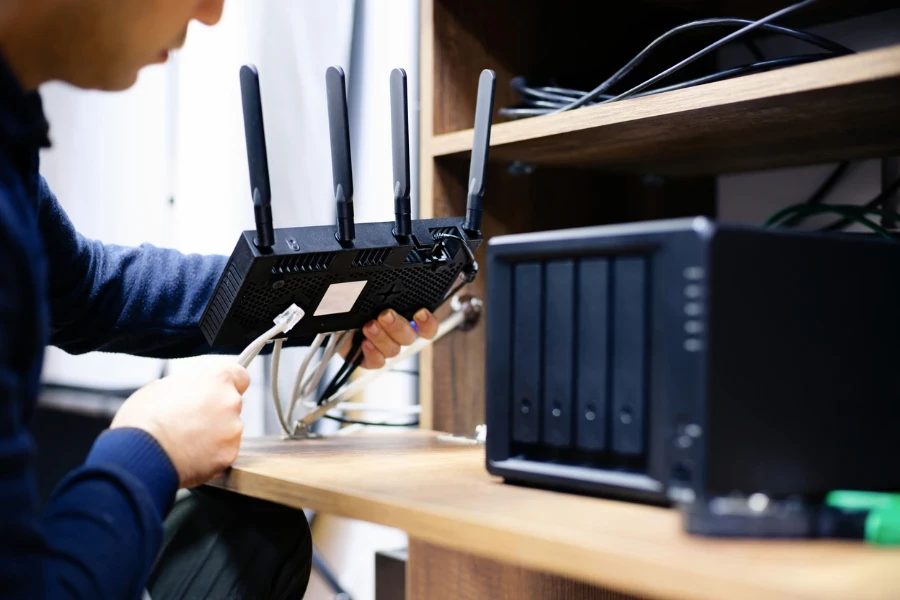In the ever-evolving landscape of technology, staying connected has become more crucial than ever. Routers, the backbone of our internet connectivity, play a pivotal role in ensuring seamless communication and data transfer. This article aims to demystify routers, shedding light on the aspects users care most about: performance, security, connectivity options, ease of use, and future-proofing. By breaking down these complex concepts, we aim to empower you with the knowledge to make informed decisions about your networking needs.
Table of Contents:
– Understanding router performance
– The importance of router security
– Exploring connectivity options
– Navigating ease of use
– Future-proofing your router investment
Understanding router performance

Router performance is a critical factor that affects your internet experience. It’s not just about the speed at which data is transferred but also how efficiently a router can handle multiple devices and manage large volumes of data. A high-performance router ensures that your streaming, gaming, and browsing experiences are smooth, without frustrating lags or interruptions.
The core of router performance lies in its processor and memory. Much like a computer, a router’s capability to process data and manage tasks simultaneously is pivotal. The advancements in Wi-Fi technology, such as the introduction of Wi-Fi 6, have significantly enhanced router performance, offering faster speeds and improved efficiency, especially in crowded networks.
Moreover, the frequency bands a router operates on (2.4 GHz and 5 GHz) also play a vital role. Dual-band or tri-band routers offer flexibility and optimization, allowing devices to connect on the band that offers the best performance at any given time. Understanding these aspects can guide you in selecting a router that meets your specific needs.
The importance of router security

In our digitally connected world, security is paramount. Routers, being the gateway to your internet, need robust security measures to protect against threats. The consequences of a compromised router can range from minor inconveniences to severe data breaches, putting your personal information at risk.
Modern routers come equipped with built-in security features such as firewalls, which monitor incoming and outgoing traffic to prevent unauthorized access. Additionally, the ability to update firmware is crucial. Manufacturers often release updates to patch vulnerabilities, and a router that can automatically update its firmware ensures you’re always protected against the latest threats.
Another critical security feature is the support for advanced encryption standards, like WPA3, which safeguards your Wi-Fi network’s privacy and integrity. By prioritizing these security features when choosing a router, you can significantly reduce the risk of cyber threats.
Exploring connectivity options

Connectivity options determine the versatility and convenience of your router. Today’s routers offer a range of ports and interfaces to cater to various devices and needs. Ethernet ports, for example, provide a stable and fast connection for devices like desktop computers and gaming consoles, while USB ports can be used for sharing printers or storage devices across the network.
The evolution of Wi-Fi standards has also expanded connectivity options. Wi-Fi 6, the latest standard, not only improves speed and performance but also increases the capacity for more devices to connect simultaneously without impacting the network’s overall performance. This is particularly beneficial in households with numerous devices vying for bandwidth.
Moreover, some routers offer mesh networking capabilities, allowing you to expand your Wi-Fi coverage without the need for additional cables. This feature is especially useful for larger homes or offices that require consistent coverage across a wide area. By understanding the connectivity options available, you can choose a router that best fits your environment and needs.
Navigating ease of use

The user experience is a crucial aspect of routers that often gets overlooked. A router that is difficult to set up or manage can be a source of frustration. Fortunately, manufacturers have made significant strides in improving the ease of use of routers. Many now come with intuitive mobile apps that guide you through the setup process and allow you to manage your network settings easily.
Features like parental controls, guest networks, and device prioritization have become more accessible, enabling users to customize their network according to their needs without delving into complex configurations. The ability to control these features through a smartphone app not only makes the process more convenient but also allows for real-time adjustments.
It’s also worth noting that the design of routers has evolved. Sleeker, more compact designs are increasingly common, making it easier to integrate the router into your home without it being an eyesore. When considering ease of use, look for routers that offer a balance between functionality and user-friendly design.
Future-proofing your router investment

Investing in a router is not just about meeting your current needs but also ensuring it can handle future demands. Technology is constantly advancing, and the internet of things (IoT) is bringing more devices online. A future-proof router is one that can adapt to these changes, providing the speed, security, and connectivity options needed for tomorrow’s technology.
One way to future-proof your router is to look for devices that support the latest Wi-Fi standards and have the capability to update their firmware automatically. Additionally, considering routers with advanced features like MU-MIMO (Multi-User, Multiple Input, Multiple Output) and OFDMA (Orthogonal Frequency Division Multiple Access) can offer a more efficient and scalable network.
Furthermore, evaluating the manufacturer’s track record for providing updates and support can give you insight into the longevity of your investment. A router that is regularly updated and supported is more likely to stay relevant and secure in the face of evolving technology trends.
Conclusion
Routers are the cornerstone of our digital lives, and understanding the key aspects that affect their performance, security, connectivity, ease of use, and future-proofing can empower you to make an informed decision. By considering these factors, you can select a router that not only meets your current needs but also adapts to future advancements, ensuring a seamless and secure online experience.




